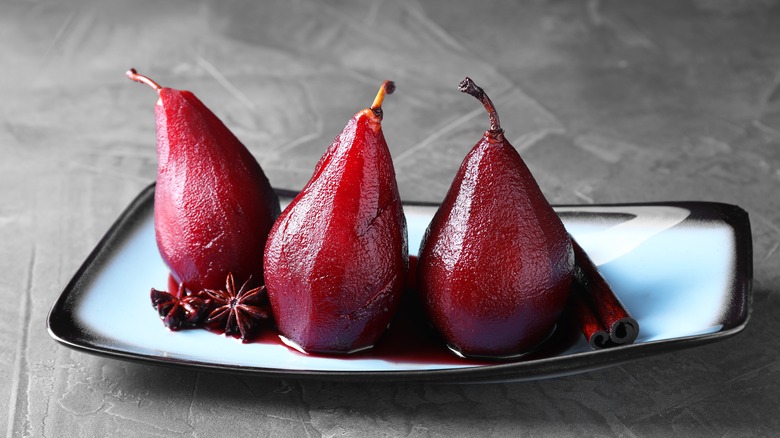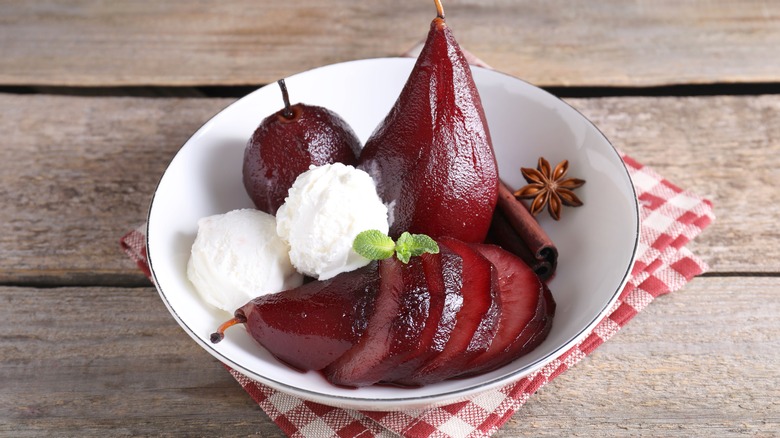What Is The Best Wine To Use For Poached Pears?
Whether as a snack, dessert, or salad topping, poached pears are a versatile ingredient that are always great to keep on hand. However, to capture the perfect balance of flavors, you have to pick the right wine. We spoke to chef Michael White ahead of the Nassau Paradise Island Wine & Food Festival to learn more about the best bottles for the best results.
His advice is as simple as it is important: "Pinot noir and sangiovese all work." While both varieties have great amounts of terroir — or the ability to take on different flavors depending on where they're grown — they always have one thing in common: high acidity. Given that a pear has about 17.4 grams of sugar, and you may be using sugar in your poaching liquid, you need something to balance out that sweetness. Why not check two boxes at once with the right wine, giving your fruit complexity while preventing it from becoming overly sweet?
Now, much like sangiovese, pinot noir is more expensive than most wines, so if you're making this dish on a budget, you may want to opt for a Gamay or even pinot grigio if you're willing to swap to a white wine. Remember that you should never spend more than $10 for cooking wine, so don't feel like you need to pick anything too high-quality. Regardless of your choice, poached pears should always be prepared with spices, herbs, and juices that complement both the wine and the pear.
How to boost the flavor of your poached pears
Peeling pears before poaching them is just the first step to developing the perfect ornament to your dish. Much like how selecting the right wine expands their flavor profiles, heady spices, bright citrus, and earthy herbs transform them.
"I like to spice them up with cinnamon, star anise, bay leaves, sugar, and lemon," chef Michael White tells us. Cinnamon adds a touch of heated spice that warms the tongue, creating a delicious contrast when the pears are chilled. Star anise and bay leaves are a bit subtler, suffusing your fruit and liquid with heady tastes that won't outshine your main ingredients but are still impossible to ignore. Sugar and lemon are great ways to correct the amounts of sweet and sour in the pot, allowing you to use whatever wine you'd like without sacrificing this key balance.
"After the pears are poached, you can chill the pears in the poaching liquid," says White. "Reducing some of the cooking liquid can make a dressing for the pears." Chilling or even canning and storing the pears in their poaching liquid ensures they won't dry out or lose any flavor. Plus, you should never waste it. That liquid is an absolute gold mine when you want to upgrade simple olive oil and vinegar salad dressings, imparting fruity, boozy, spicy, and herby flavors all at once with next to no effort. Add a tablespoon to a quarter cup of dressing for something that's so addicting you'll be eating salads for a week straight.


